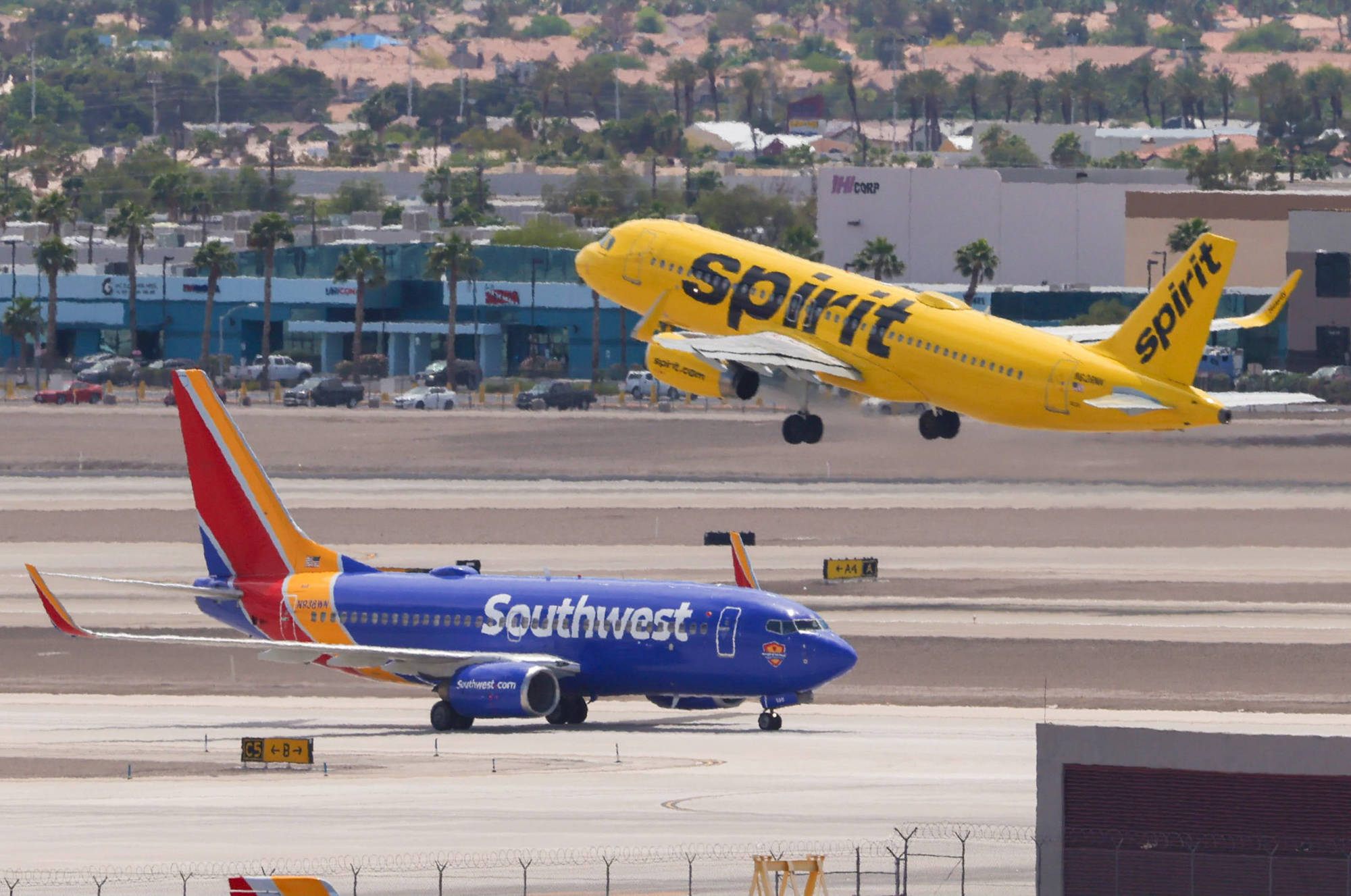A plan to expand and modernize Harry Reid International Airport — the seventh-busiest in North America — received an informal go-ahead from Clark County commissioners Tuesday.
The proposal, presented by County Department of Aviation officials, would increase the number of gates at the facility’s oldest terminal, improve passenger access at the 12-year-old Terminal 3, and add new parking areas and facilities for transportation services while upgrading multiple roads. Officials say it could alleviate delays in arrivals and departures.
The renovation and expansion plans would allow the Department of Aviation to squeeze as much space as possible out of the landlocked airport’s existing footprint while the new Southern Nevada Supplemental Airport is created in the Ivanpah Valley just north of Primm and 30 miles south of Reid. Ivanpah was first envisioned 24 years ago through federal legislation that allowed for the sale of 6,500 acres of federally owned land. The most recent timeline has the airport pegged for completion in 2037.
Reid Airport is coming off successive record-setting years, drawing 57.6 million passengers last year — shattering 2022’s previous mark of 52.6 million passengers. Between May and July, the airport averaged more than 5 million passengers a month. The highest passenger figure came in October 2023 — 5.4 million passengers.
Through August, passenger totals are up almost 3 percent for 2024.
Before the project can begin, additional approvals are needed from various entities that use the airport — including the airlines — and a budget still needs to be determined. Aviation department officials said the project could take up to four years to complete if all aspects are included.
Department of Aviation Director Rosemary Vassiliadis said following the half-hour hearing that the next step in the process is a meeting between airport officials and airline company executives in December to discuss the concept.
“We see this as a continuous project,” Vassiliadis said. “We will look at their comments and decide what is the most feasible.”
The last major expansion at Reid Airport — 2012’s opening of the $2.4 billion Terminal 3 — took four years to complete.
The bulk of the project’s cost would be paid for through user fees — which are collected from all airport users, including the airlines, passengers and airport concessions — and revenue from the facility’s slot machines. Vassiliadis said the airport has historically taken out bonds for similar projects.
“We do have a lot of capacity because we have not been bonded in years,” Vassiliadis said.
Under Reid’s proposed expansion, the number of gates at Terminal 1 would increase from 39 to 65 through a redesign of the A and B gates. A wing with additional gates would be added on vacant land that once housed the now-demolished Terminal 2, which had been used for international flights. It was torn down after Terminal 3 opened.
Vassiliadis said the new gates would most likely be the initial project because the existing Terminal 1 concourses will be demolished in phases and replaced with new terminals that resemble an ocean pier that juts out from the main building. Airport officials said the design allows for more gates and large passenger holding rooms with high ceilings.
The new concourses would be outfitted with new wayfinding signage and technology and other essential amenities. Many of the gates would be renumbered.
“We can’t close any gates until we have the new ones built,” Vassiliadis said.
James Chrisley, senior director of aviation, said the airport is getting approval from Clark County to remove a no-longer-needed flood detention basin that will create additional aircraft parking.
“Having the conceptual detail helps us understand what we’re able to do with the existing facilities,” said Clark County Commissioner Jim Gibson. “There’s a lot that needs to be done at Harry Reid right now, and it’s a relief to me that we’re on a pathway now to accomplish that.”

Increasing passenger volume
The expansion is viewed as a much-need fix for the 76-year-old facility, which is landlocked and can’t expand beyond its current configuration of four runways and two large terminals that house 110 passenger gates.
Vassiliadis agreed that expanding the number of passenger gates would be the initial focus since it would help alleviate delays in arrivals and departures.
Chrisley said additional gates do not translate into more flights. The airport has nonstop service to 159 U.S. and international markets from 30 airlines.
Department of Aviation officials said the facility’s usage isn’t subsiding, given the Strip’s expanding special event calendar and renewed international interest in coming to Las Vegas.
A plan to configure the second-level curbside drop-off, ticketing and baggage handling at Terminal 3 would help improve passenger circulation in the building and reduce congestion, airport officials said.
Other proposed changes include new access for Uber, Lyft and other ride-sharing services that now utilize one floor of a long-term parking garage. The plans call for two “multimodal centers” for public transportation, rideshare and airport crew members and employee parking.
One center would be located off Paradise Road south of Tropicana Avenue and another center is being considered between Interstate 215 and Sunset Road or between Las Vegas Boulevard and Gillespie Road.
Plans also include a revision to the airport’s ground transportation routes that would improve connection between the terminals. One solution includes keeping the one-way circular motion of airport road traffic and airport bypass options but also considers the possibility of a new flyover bridge that would move vehicles from Paradise Road to the renamed Terminal 2.
Bryant Holt, managing director of aviation planning, said unlike most major airports, Reid has a major thoroughfare that runs through the airport and is subject to slowdowns if there is an accident during peak hours. He said a flyover would separate airport traffic from commuter traffic.

